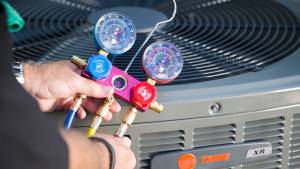1. Introduction to Heating Repair DIY: Balancing Safety and Skill
Heating repair DIY can be a rewarding experience, allowing homeowners to save money and gain a deeper understanding of their heating systems. However, it’s essential to recognize the line between manageable DIY tasks and those that require professional expertise. According to a survey by the Home Improvement Research Institute, 43% of homeowners feel confident in undertaking minor heating repairs themselves. This introduction sets the stage for understanding when DIY is appropriate and when it’s time to call in the pros.

2. Simple Heating Repair Tasks You Can Do Yourself
There are several heating repair tasks that most homeowners can safely manage. These include changing air filters, basic thermostat troubleshooting, and cleaning vents and registers. A study by the National Association of Home Builders found that routine maintenance tasks can extend the life of your heating system by up to 25%. Tackling these simple tasks not only keeps your system running efficiently but also provides an opportunity to spot potential issues before they escalate.
3. Recognizing Your Limits in Heating Repair
While DIY can be empowering, it’s crucial to recognize your limits. Complex tasks, such as dealing with gas lines, electrical components, or internal mechanics, require specific skills and safety knowledge. According to the U.S. Consumer Product Safety Commission, there are approximately 25,000 residential fires each year related to heating systems, underscoring the importance of exercising caution. Knowing when to step back is not just about skill, but also about prioritizing safety.
4. The Benefits of Professional Heating Repair Services
Professional heating repair services offer expertise, efficiency, and peace of mind. Certified technicians have the training to diagnose and repair complex issues swiftly. Data from the Energy Information Administration suggests that professional maintenance can improve heating efficiency by up to 15%. Professionals also ensure that repairs comply with local safety regulations, reducing the risk of accidents.
5. Cost Considerations: DIY vs. Professional Heating Repair
Cost is a significant factor in the decision between DIY and professional heating repair. While DIY might seem cheaper upfront, incorrect repairs can lead to more significant expenses down the line. A report by the American Council for an Energy-Efficient Economy highlights that proper maintenance by professionals can reduce overall heating costs by preventing major breakdowns. Weighing the potential savings against the risks and long-term impacts is crucial.
6. Learning and Resources for DIY Heating Repair Enthusiasts
For those interested in heating repair DIY, numerous resources are available. Online tutorials, community workshops, and basic repair guides offer valuable knowledge. Additionally, some manufacturers provide specific guidance for their systems. However, it’s important to use reliable sources and recognize the difference between general advice and system-specific instructions.
7. Making the Right Choice for Your Heating Repair Needs
In conclusion, while heating repair DIY can be a viable option for minor issues, understanding when to call a professional is key. Balancing the desire to DIY with the need for safety and expertise ensures that your heating system remains efficient, safe, and reliable. Whether you choose to handle minor tasks yourself or enlist the help of a professional, staying informed and cautious is paramount.



